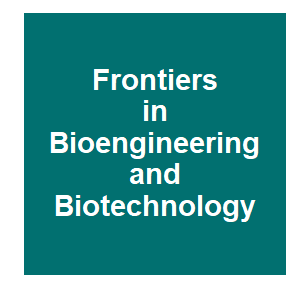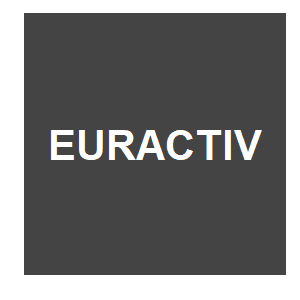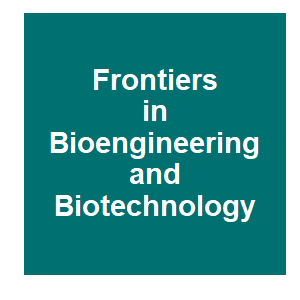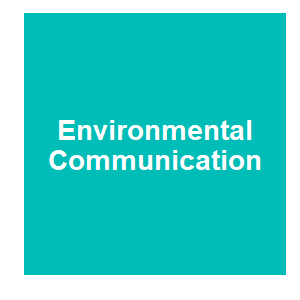
Keywords: public opinion

|
General science-technology orientation, specific benefit–risk assessment frame, and public acceptance of gene drive biotechnologyX. Liu, C. L. Goldsmith, K. E. Kang, A. Vedlitz, Z. N. Adelman, L. W. Buchman, E. Heitman and R. F. Medina, Risk Analysis, 2023.
Abstract With limited understanding of most new biotechnologies, how do citizens form their opinion and what factors influence their attitudes about these innovations? In this study, we use gene drive biotechnology in agricultural pest management as an example and theoretically ... Keywords: gene drive synthetic, public opinion, survey |

|
Public perspectives towards using gene drive for invasive species management in AustraliaA. Mankad, E. V. Hobman and L. Carter, CSIRO, 2022.
Many pest animal species live and reproduce in high numbers across Australia. This includes animal species, such as cane toads, feral cats, foxes, rodents, wild pigs, wild rabbits. These species significantly damage Australia’s agricultural industries, natural landscapes, and ... Keywords: gene drive synthetic, public opinion, survey |

|
California Residents’ Perceptions of Gene Drive Systems to Control Mosquito-Borne DiseaseC. E. Schairer, C. Triplett, O. S. Akbari and C. S. Bloss, Frontiers in Bioengineering and Biotechnology, 10. 2022.
Scientists developing gene drive mosquitoes for vector control must understand how residents of affected areas regard both the problem of mosquito-borne disease and the potential solutions offered by gene drive. This study represents an experiment in public engagement at an early ... Keywords: gene drive synthetic, public opinion, survey |

|
Stakeholder Views on Engagement, Trust, Performance, and Risk Considerations About Use of Gene Drive Technology in Agricultural Pest ManagementC. L. Goldsmith, K. E. Kang, E. Heitman, Z. N. Adelman, L. W. Buchman, D. Kerns, X. Liu, R. F. Medina and A. Vedlitz, Health Security, 2021.
Gene drive is an experimental technique that may make it possible to alter the genetic traits of whole populations of a species through the genetic modification of a relatively small number of individuals. This technology is sufficiently new that literature on the understanding ... Keywords: gene drive synthetic, public opinion, survey |

|
Public Perceptions Regarding Genomic Technologies Applied to Breeding Farm Animals: A Qualitative StudyF. Z. Naab, D. Coles, E. Goddard and L. J. Frewer, BioTech, 10. 2021.
The societal acceptability of different applications of genomic technologies to animal production systems will determine whether their innovation trajectories will reach the commercialisation stage. Importantly, technological implementation and commercialisation trajectories, ... Keywords: gene drive synthetic, public opinion, survey |

|
Public attitudes towards synthetic biologyCSIRO, Synthetic Biology Future Science Platform, 2021.
A national survey has been conducted by CSIRO’s Synthetic Biology Future Science Platform as an important first step in measuring public attitudes towards synthetic biology. The survey draws on the views of more than 8,000 Australians, and researchers are examining the data to ... Keywords: gene drive synthetic, public opinion, survey |

|
Les Européens très critiques vis-à-vis du forçage génétiqueL. Duboua-Lorsch, EURACTIV, 2021.
Cette technique, qui vise à éradiquer ou modifier certaines espèces dites nuisibles, sera au cœur des négociations cette année, alors que se profile la COP15 sur la biodiversité. maginez un monde débarrassé d’insectes porteurs de maladies, de parasites agricoles, ... Keywords: gene drive synthetic, public opinion, survey |

|
GENE DRIVE ACCEPTANCE SURVEYYouGov, Pollinis, 2021.
This representative survey was conducted by the international market research institute YouGov and polled 8.826 citizens from 8 EU countries in December 2020. It was commissioned by WeMove Europe, Save Our Seeds (Germany), Skiftet (Sweden), France Nature Environnement (FNE) ... Keywords: gene drive synthetic, public opinion, survey |

|
The Promises and Realities of Integration in Synthetic Biology: A View From Social ScienceL. Carter and A. Mankad, Frontiers in Bioengineering and Biotechnology, 8. 2021.
We take stock of thepromises and realities of science integration by sharing our experiences of embarking onthis very challenge in Australia. We conclude by offering suggestions for bringing aboutthe enabling conditions for improved integration across the natural and social ... Keywords: gene drive synthetic, public opinion, survey |

|
Public opinion on gene editingP. Thomas, The Ecologist, 2020.
What does the public think of genetic engineering in food and farming? Is there more acceptance, or less, these days? Have the issues changed over time, or is it just more of the same? How well informed do you believe you are? Beyond GM like you to participate in our survey to ... Keywords: gene drive synthetic, public opinion, survey |

|
Public Opinion Towards Gene Drive as a Pest Control Approach for Biodiversity Conservation and the Association of Underlying WorldviewsE. A. MacDonald, J. Balanovic, E. D. Edwards, W. Abrahamse, B. Frame, A. Greenaway, R. Kannemeyer, N. Kirk, F. Medvecky, T. L. Milfont, J. C. Russell and D. M. Tompkins, Environmental Communication, 14:904-918. 2020.
Synthetic gene drive approaches are nascent technologies with potential applicability for pest control for conservation purposes. Responsible science mandates that society be engaged in a dialogue over new technology, particularly where there exist global ramifications as with ... Keywords: gene drive synthetic, public opinion, survey |

|
Biological control of pests and a social model of animal welfareA. Mankad, U. Kennedy and L. Carter, Journal of Environmental Management, 247:313-322. 2019.
We consider the role of perceived humaneness or, more accurately, animal welfare as it relates to managing invasive species from a scientific and social perspective. In order to highlight and articulate particular nuances and standards across different pest control contexts, we ... Keywords: gene drive synthetic, public opinion, survey |

Contact
David O’Brochta
Foundation for the
National Institutes of Health
geneconvenevi@fnih.org
RSS

